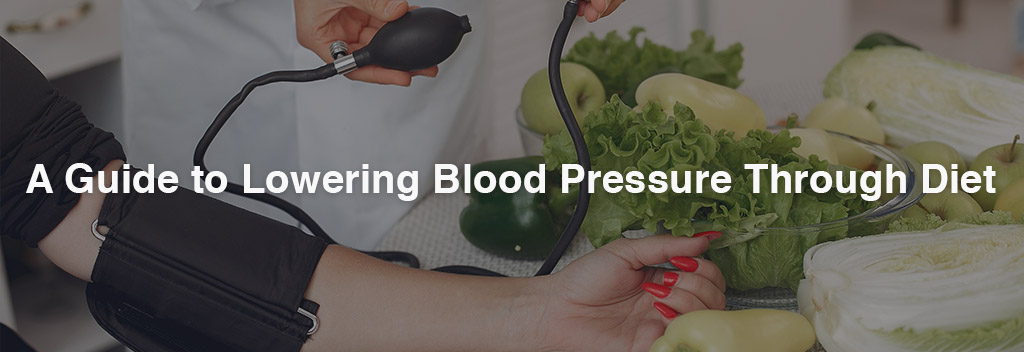
According to the National Institute of Diabetes and Digestive and Kidney Diseases (NIDDK), around 38% of adults aged 65 or older have CKD or chronic kidney disease. It is a condition in which the kidneys get damaged and lose their ability to function properly over time, typically for several months or years. In the case of CKD, individuals report a gradual decline in kidney function, leading to a buildup of waste and fluid in the body. Common health complications that occur due to CKD include anemia, bone disease, high blood pressure, heart disease, nerve damage, weakened immune function, etc.
Read More: 5 Ways for Seniors to Have a Healthy Heart
Difference between Kidney Failure and Chronic Kidney Disease
There is a common misconception that chronic kidney disease (CKD) and kidney failure are the same. CKD refers to the gradual loss of kidney function over time, often due to underlying health conditions like diabetes or high blood pressure. CKD generally progresses slowly and can lead to kidney failure if not treated in time.
Kidney failure is a severe kidney issue which is also known as end-stage renal disease (ESRD). In this condition, kidneys can no longer function properly and support the body’s needs.
Symptoms of Chronic Kidney Disease
Chronic kidney disease (CKD) often shows no symptoms in its early stages. However, as the condition progresses, a person may experience a variety of symptoms which are as follows:

- Fatigue
- Shortness of breath
- Swelling
- Changes in urination pattern
- Nausea and vomiting
- Loss of appetite
- Difficulty in sleeping
Not everyone with CKD experiences all these symptoms, and some people may experience no symptoms at all. In case of any concerns about kidney health, it is wise to speak with a primary care physician. As quickly as possible
Causes & Risk Factors for Chronic Kidney Disease
Genetics
Inheritance can be a contributing factor behind some types of CKD. For instance, polycystic kidney disease is an inherited medical condition in which fluid-filled cysts develop in the kidneys over time, eventually leading to kidney failure.
Sedentary lifestyle
A sedentary lifestyle, with little to no physical activity, and excessive intake of processed foods, and alcohol have been linked to an increased risk of developing CKD.
Chronic conditions
Seniors with diabetes, high blood pressure, and heart disease are at a significantly increased risk of developing CKD.
Long-term use of certain medicines
Some medications, including nonsteroidal anti-inflammatory drugs (NSAIDs) like ibuprofen and naproxen, can damage the kidneys when used over a long period of time.
Age
CKD is more prevalent among older adults aged over 55.
Gender
Men are more likely to develop chronic kidney disease than women.
Race and ethnicity
CKD is more common among African Americans, Hispanics, and Native Americans.
How is CKD diagnosed?
Chronic kidney disease is typically diagnosed by checking the estimated glomerular filtration rate. The glomerular filtration rate is a blood test that helps determine how well the kidneys filter waste from the blood. When eGFR is less than 60 milliliters per minute for three or more months, it is considered CKD. Other criteria for diagnosis may include the presence of protein or other abnormalities in the urine.
Prevention of Chronic Kidney Disease

1. Maintain a healthy weight
Being overweight or obese increases the risk of developing chronic conditions like hypertension and diabetes, some of the leading causes of CKD. Seniors can maintain a healthy weight by following a balanced diet and consuming the correct number of calories for their age, gender, and activity level. Add a variety of whole grains, fruits, vegetables, lean proteins, and healthy fats to their regular diet.
In addition, aim for at least 30 minutes of moderate physical activity, such as walking every day. Regular exercise not only helps with weight management but also manages chronic diseases that can contribute to CKD.
2. Follow a low-phosphorus diet
Phosphorus is an essential mineral that plays a key role in many bodily functions, including bone and teeth health, energy metabolism, and cell function. However, a phosphorus-rich diet can prevent the kidneys from excreting phosphorus from the body over time and build up toxins.
Avoiding high-phosphorus foods, such as dairy products, red meat, processed foods, brown rice, whole wheat bread, kidney beans, chickpeas, etc., can reduce the risk of kidney disease.
3. Stay hydrated
Adequate water intake helps the kidneys filter out toxins and waste products from the body. The recommended water intake is 8-11 cups of water per day for men, and 6-8 cups for women.
In addition, it is crucial to limit alcohol intake to prevent dehydration. Dehydration can place extra strain on the kidneys, which can eventually lead to kidney damage over time. The National Institute of Diabetes and Digestive and Kidney Diseases recommends that men need to limit their alcohol intake to two drinks per day. On the other hand, women should restrict their intake to one drink per day.
4. Monitor blood pressure regularly
High blood pressure is one of the leading causes of chronic kidney disease, and keeping track of blood pressure levels helps reduce the risk. If the blood pressure levels of seniors are consistently above 140/90 mmHg, it is critical to consult a doctor.
Seniors need to monitor their blood pressure regularly at home with a blood pressure monitor or at a local pharmacy or doctor’s office. Following a low-sodium diet can also help lower blood pressure. Additionally, try to manage stress as it can raise blood pressure levels.
5. Manage diabetes
Seniors suffering from diabetes are more likely to get CKD if their blood sugar levels are not controlled. They can manage diabetes in a few ways which are as follows:
- Check and monitor blood sugar levels regularly
- Eat foods low in sugar, salt, and saturated fats
- Be active and exercise regularly
- Take prescribed medications as directed
- Get adequate sleep
- Do not miss regular screenings
6. Avoid long-term use of certain medications
Some medications can contribute to chronic kidney disease (CKD), particularly when used for long periods or in high doses. They include:
- Nonsteroidal anti-inflammatory drugs (NSAIDs) which are commonly used to treat headaches, other pain, fever, inflammation, etc.
- Proton pump inhibitors (PPIs) are medications that reduce stomach acid production and are used to treat gastroesophageal reflux disease (GERD) and other digestive conditions.
- Some antibiotics, such as aminoglycosides and vancomycin can lead to kidney disease over time.
- Contrast dyes are generally considered safe and are sometimes used for medical imaging tests, such as CT scans or angiograms. However, they can cause kidney damage in some people, particularly those with preexisting kidney disease.
Taking these medications doesn’t mean it will cause the development of CKD, and in many cases, the benefits of the medication may outweigh the risks. However, seniors with preexisting kidney disease should be monitored closely and may need to avoid certain medications or use them with caution. It is critical to consult a doctor for detailed guidance.
Conclusion
Chronic kidney disease (CKD) is a growing global health concern that affects millions of people worldwide and can lead to significant morbidity, mortality, and healthcare costs. To raise awareness about the importance of kidney health and the impact of CKD, the International Society of Nephrology and the International Federation of Kidney Foundations established World Kidney Day, which is observed every year on the second Thursday of March. By preventing CKD, it is possible to reduce the risk of this disease and improve the quality of life.
For detailed guidance on chronic kidney disease, contact EliteCare, Health Centers, one of the best medical clinics that provides senior care services. Visit your nearest center or contact us to schedule an appointment with our providers.






